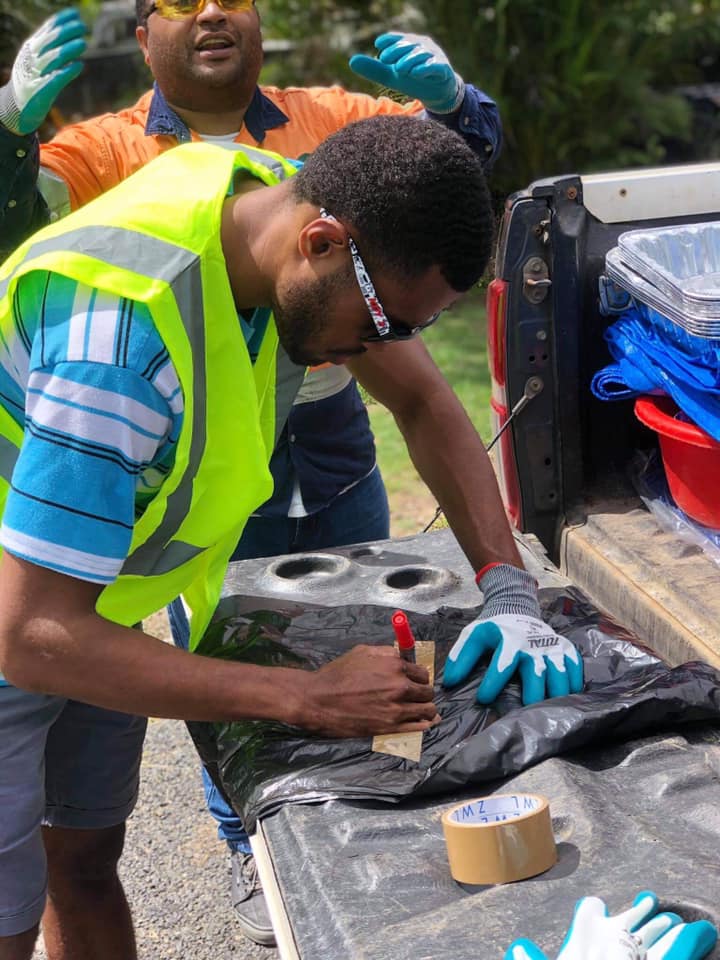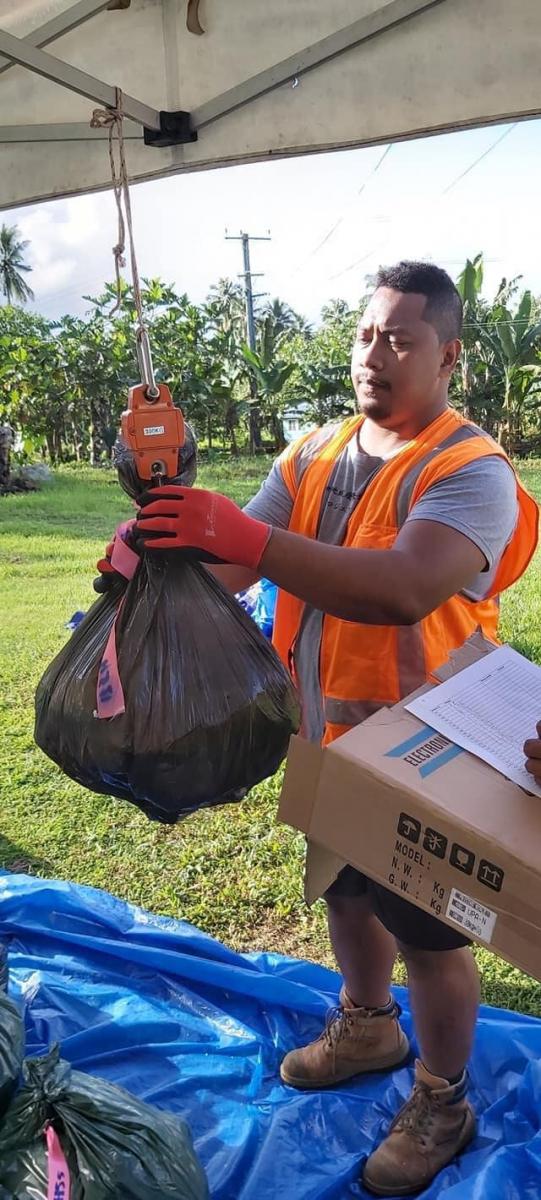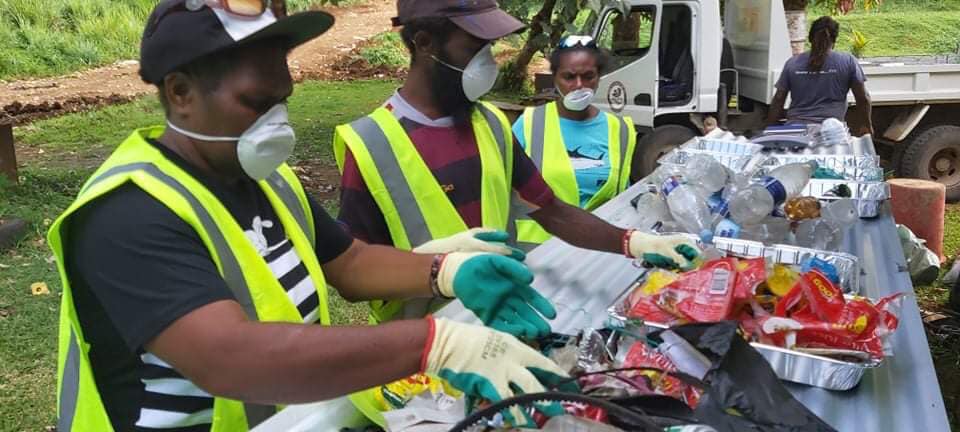PWFI Quantification analysis progresses in the Pacific
The Plastic Waste Free Islands (PWFI) project, funded by the Norwegian Agency for Development Cooperation (NORAD) is a three-year initiative working with six (6) Small Island Developing States (SIDS) in the Caribbean and in the Pacific region. The overall goal of the project is to reduce plastic waste generation and leakage from Small Island Developing States.
A major component of the project is the quantification analysis of plastic waste specifically a Plastic Waste Data Mapping that maps an island-wide plastic influx and outflux to identify sources, quantities and pathways of plastic waste generated and leaked per island in the three sectors; waste management, tourism and fisheries. IUCN engaged the expertise of the Asia Pacific Waste Consultants (APWC) to carry out this component of the project. Despite the challenges faced in the early stages of the pandemic resulting in consequent restrictions in the Pacific region, IUCN and APWC have managed to see some progress in the three countries.
APWC engaged expertise and trained local staff in Vanuatu, Fiji and Samoa to carry out waste audits because of the coronavirus travel restrictions that prevented them from travelling to these locations. With the support of the Samoan Department of Environment, work commenced in Samoa in May and a team of around 13 well-trained local and regional staff team visited various sites to undertake stockpile assessments and conduct interviews with various stakeholders. The team managed to spend three days on the island of Savaii in Samoa, completing 40 rural household collection, sampling and interviews, visited the local landfill on Savaii and carried out an assessment of the landfill in Apia. Sampling work, as well as interviews coverage in Samoa, included more than 200 households, 10 domestic vessels, around 20 bottling companies as well as a handful of recycling companies. The waste audit in Samoa has successfully ended in July and reports are currently being finalised.
Quantitative analysis has also begun in Fiji, fieldwork teams completed their training in August and work commenced in late September. The team gathered data from households in Lautoka and Levuka, interviewed and collected samples from various fishing vessels and assessed dumpsites at the two locations. The Ministry of local governance and the Ministry of Tourism have been helpful in progressing the work in Fiji and talks are in progress with the Department of Environment for support to allow interagency engagement and access to the Naboro landfill. Similar progress has been ongoing in Vanuatu since the beginning of September.
Vanuatu’s Department of Environment and Conservation has been instrumental in progressing the work in Vanuatu as samples has been collected and interviews conducted with fisheries stakeholders as well as households in Port Vila and Santo. Work continues to progress in Fiji and Vanuatu and is expected to continue into the new year.
APWC also collaborated continually with Searious Business, the consultancy team that is working in parallel on the qualification component of the project.
For more information, please contact paula.katirewa@iucn.org



